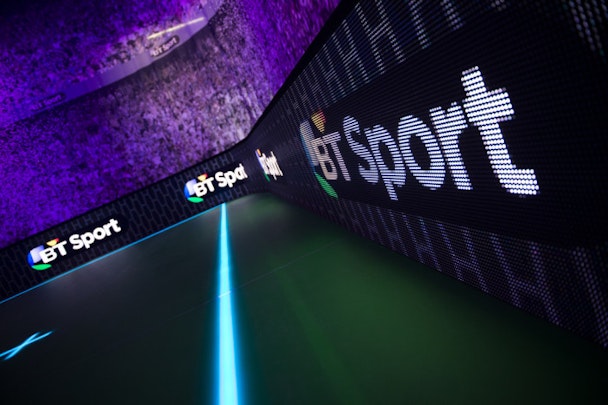BT Sport: 'Live streaming sports on social platforms is only commercially viable if they give us user data'
BT Sport believes live streaming sports only makes sense to commercial broadcasters if their rights are packaged as a data buy otherwise they are just giving lucrative content away for free.

BT Sport is gearing up for what has been one of its boldest, and potentially riskiest, moves in recent years; after paying £900m for the rights to the Champions League, it will live stream the all-important final for free on YouTube this weekend. The pay off? The data that YouTube has promised to give it on every single viewer that streams the game. This is the only way to make streaming sports on social sites commercially viable, according to Mike Norrish, the digital executive producer at BT Sport.
The pay-TV broadcaster confirmed earlier this month that it had inked a deal with YouTube to air the Champions League and Europa League finals, the latter of which was screened last week.
At the time the deal was announced, John Petter, chief executive of BT Consumer, said the move would "bring BT Sport to a new generation of younger sports fans” and that he wanted to make this the “most social sports broadcast ever”.
At the Shift London conference yesterday (24 May), Norrish revealed that getting senior buy-in for the strategy wasn’t straightforward and that giving the final away for free was initially met “with some opposition”.
It’s not clear what changed the opinion of senior stakeholders. Press speculation in light of the deal suggested it was sealed by the disappointing viewing figures of Champions League and Europe League (which at one point went from 4.4 million on ITV to just 200,000) might bear some truth. Norrish said it’s hoping to create a “national moment” during the Champions League final, like it saw when ITV held the rights.
But beyond that, there was the realisation that it could be a lucrative customer acquisition tool. Full terms of the deal have not been disclosed but it’s now understood that Google-owned YouTube will hand BT Sports data on every single viewer – who it already knows will be a Champions League fan, a UK resident, and most likely a non-BT Sport subscriber – which it can then use in a two-pronged marketing attack.
Firstly, it will retarget them in the week following the final with BT Sports packages and offers. Then, in the lead up to the next season of football, with the Champions League rights still with BT Sport, those same people will be targeted with more special offers to sign up with the broadcaster.
Boiling down the strategy to its simplest form, Norrish said: “It’s a data buy, essentially.
“We’re going to get a certain amount of cookie data and if we convert a portion then it will result in a certain lifetime yield. It’s an easy calculation.”
The same can’t be said for streaming deals with other platforms, namely Facebook which has has been making moves into live sports streaming (most recently in a European-first deal with La Liga). While the sheer volume of users Facebook can offer is clearly a draw for the likes of BT Sport, the data they get in exchange is low versus YouTube.
“Speaking candidly – we’re getting cookie data [from YouTube] and that’s great but not necessarily true of other platforms,” explained Norrish.
“Data is Facebook’s business and so what they give you back is limited. From a business point of view the position of what you get back from those platform to achieve your business goals is certainly something we’re looking for this year and how we do it in the future.”
An estimated audience in the high hundreds of thousands watched the YouTube live stream of the Europa finals, in comparison to a peak audience of 3.5m on BT TV and it's likely Champions League will command even more in the UK. So driving awareness of the BT brand clearly isn't a problem but it remains to be seen how people, tuning in for a free view of the matches, will respond to future marketing messages and if BT Sport can successfully navigate the challenge most paid-for content providers face - how to get people to part with cash after they've already had something for free.
Looking to the future, there’s also the issue of Facebook, YouTube, and Twitter becoming competitors. There was much speculation that YouTube might bid for screening rights to the Premier League, but in the end pulled out, while Twitter recently acquired the rights to stream Thursday night NFL games in the US.
The challenges of making it a success come back to the inflated price of sports broadcasting rights. Twitter secured the NFL deal for much less than the going rate likely because the NFL is looking to come across to people in a fresh and innovative way, opined Norrish.
While traditional broadcasters can recoup the costs of spending nearly £1bn on sports rights through advertising or, in BT’s case its pay-TV model, those social platforms would need to establish a direct relationship with users whereby they would need to subscribe to watch a game.
“[It’s not realistic] unless they’ve got a way to monetise it,” said Norrish. “Whether that changes – I don’t know – but don’t see any real competition.”

